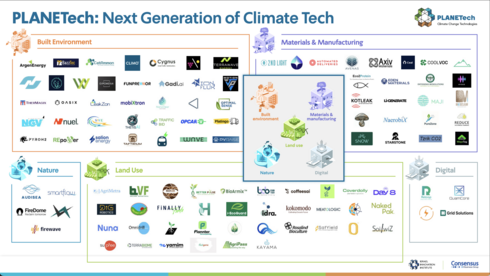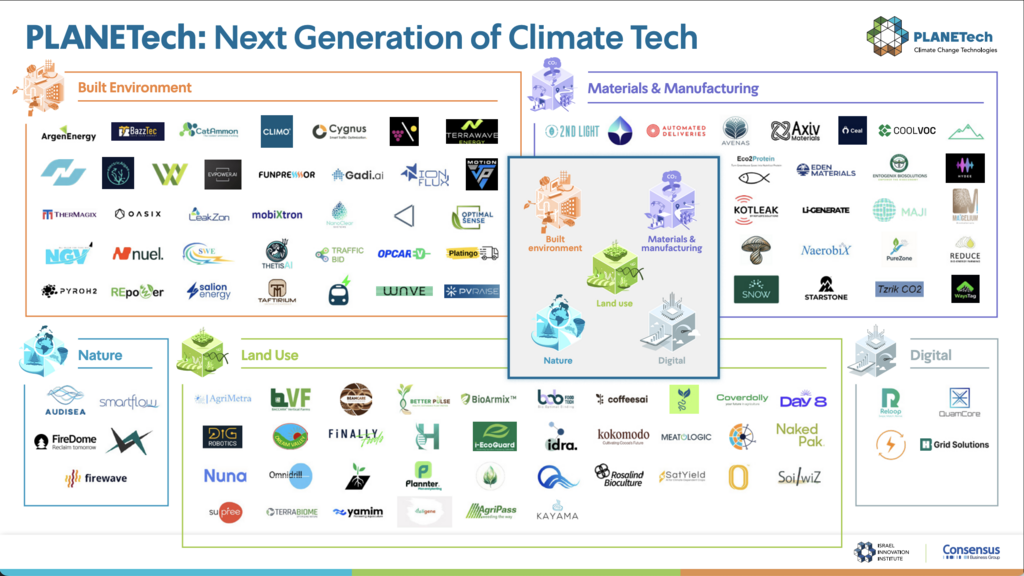
Mapping the next generation of Israeli ClimateTech
From DefenseTech-based wildfire systems to alternative proteins and sustainable construction materials, PLANETech’s latest initiative puts the spotlight on the newest wave of Israeli startups driving tech innovations to tackle the ongoing climate crisis.
A curated map from Israel’s ClimateTech Community, PLANETech, is spotlighting a promising new cohort of Israeli startups driving innovation in the climate sector.
According to Rotem Trivitsky, CEO of PLANETech, which is a joint venture of the Israel Innovation Institute and Consensus Business Group, the initiative is part of a broader effort to strengthen Israel’s climate innovation ecosystem and foster international cooperation.
“Through this map, we’re saying: the Israeli climate tech ecosystem is dynamic, resilient, and responsive. Even in challenging times, innovation here doesn’t slow down. We invite the global community to take notice – and take part,” Trivitsky told CTech.
Trivitsky explained to CTech that the map is not intended to be exhaustive. Rather, it offers a select snapshot of the “next generation” of climate ventures, further illustrating how quickly the local sector is evolving.
“The map highlights only the newest startups in the Israeli climate tech ecosystem, following our recent State of Climate Tech report,” she said. “The goal is to draw attention to the most recent wave of ventures that signal where the market is heading and where new opportunities are emerging”.
She added that the curation was carried out in collaboration with PLANETech’s Investor Alliance, most climate tech investors in Israel, and key ecosystem players, with a focus on startups that demonstrated “early momentum, clear relevance to climate challenges, and strong innovation potential”.
Among the selected startups are a wildfire protection system developed from defense technology, AI-powered robotics for weed control that preserve soil and water, an innovative geothermal energy solution, technology to improve fuel efficiency and reduce greenhouse gas emissions, solutions for extracting plant-based protein from lubia (cowpea) and plant leaves, a technology that prevents fungi from spoiling food, and a new building material designed to replace conventional cement.
The initiative comes as the escalating climate crisis presents a dire need for breakthrough innovation from the tech sector.
“We see it as a practical tool for investors, corporates, and policymakers to discover and engage with fresh talent,” Trivitsky added. “It helps global players spot opportunities for partnerships, pilot programs, and investments – ultimately driving faster deployment of impactful climate solutions”.















